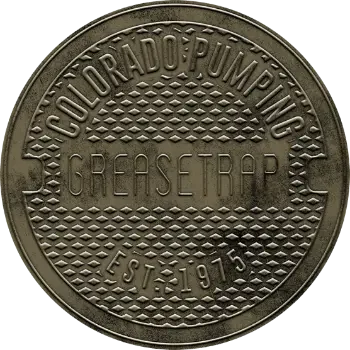Frequently Asked Septic System Questions
Our drivers are asked a variety of questions from our customers about their septic systems. These are some of the most common questions we are asked about septic systems. Hopefully you find this helpful.
We have a 2500 gallon vacuum tank truck and a 3800 gallon vacuum tank truck. We can pump septic tanks, lift stations, and grease traps of varying sizes without having to make multiple trips. If your tank size exceeds our capacity of any one truck then we can send two! No matter how big your holding tank is we'll be able to pump it out for you.
This is a good question that we are often asked. Generally speaking it's good practice to have your tank pumped out every 3-5 years. If you have a larger home, with a large family and multiple bathrooms then your septic tank might need to be pumped every 3 years. For commercial properties we usually recommend pumping annually or at least an annual septic system inspection.
It's a good idea to pump any septic tank on a property that is involved in a real estate transaction. If you are buying a new home or property that utilizes a septic system then get it pumped and inspected before you take possession.
There are more than just one type of septic system located within our Coloradoservice area. It's helpful if we know what type of system you have before we are called out to provide pumping or service.
- Conventional Septic Systems.
- Chamber Systems.
- Drip Distribution Systems.
- Aerobic Treatment Units.
- Mound Systems.
If you don't know what type of system you have we'll be able to tell you when we arrive on site.
Good Question! It's generally every 3-5 years for the average family of four. If you have a suite on your property, lots of bathrooms or a much larger family, it can increase the frequency of your pump-outs. Aside from the time lapsed between each pump out there are other signs that you should be looking for too.
- Is sewage backing up into your home?
- Do you notice foul odors from your tanks or septic field?
- Do you notice water pooling up around your septic field?
Another way to tell is to pop off the lid on your septic tank and to measure the scum and sludge layers. The scum layer is at the top of your tank and should not measure more than 8-10 inches deep. The sludge layer sits at the bottom of your tank and should not measure more than 12 inches deep. These levels can be checked using a long piece of pipe or other measuring tool that can reach at least 10 feet. We can do this for you if we're called to provide septic pumping services.
Our trucks are equipped with 200' feet of vacuum hose. If we can get our truck to within 200' of your septic tanks we can pump them out. If you think the distance will be further than 200', please let us know and our driver can come with hose extensions. We try and stay off your grass under all circumstances as it's easy to get a heavy septic truck stuck. If you have a specific route you'd prefer we take on your property please let our driver know.
Yes! We do. If you are having trouble with your septic system or you would like to know it's overall condition we can provide a thorough septic inspection. Our inspections include a visual inspection of the tank and drain field, a visual inspection of the distribution box, any pump components, and we can also do drain field testing.
We can in some circumstances but generally try to avoid this smaller type pump outs. If your RV is on an existing route we are servicing or at a local RV park we already service we might be able to help you. If you have an RV that needs pumping it's best to give our office a call (303) 278-1884.
Yes, we can provide tank and septic field location services. It's not uncommon with properties that have changed hands many times to lose track of where the septic tank or components are. We can use our electronic locating tools or a sewer camera to locate your tank and provide you with a map of your septic system.
Absolutely NOT! On an almost weekly basis we are called to pump out septic tanks that are clogged and overflowing into the customers home. Many times the issue is because baby wipes have been flushed down the toilet. One or two wipes isn't going to cause a problem but when it's dozens, or hundreds of them it will clog your system up and cause backups and potential damage to the system. It is NOT a good idea.
This is FAQ answer. Click to edit this text. Lorem ipsum dolor sit amet, consectetur adipiscing elit. Ut elit tellus, luctus nec ullamcorper mattis, pulvinar dapibus leo.
